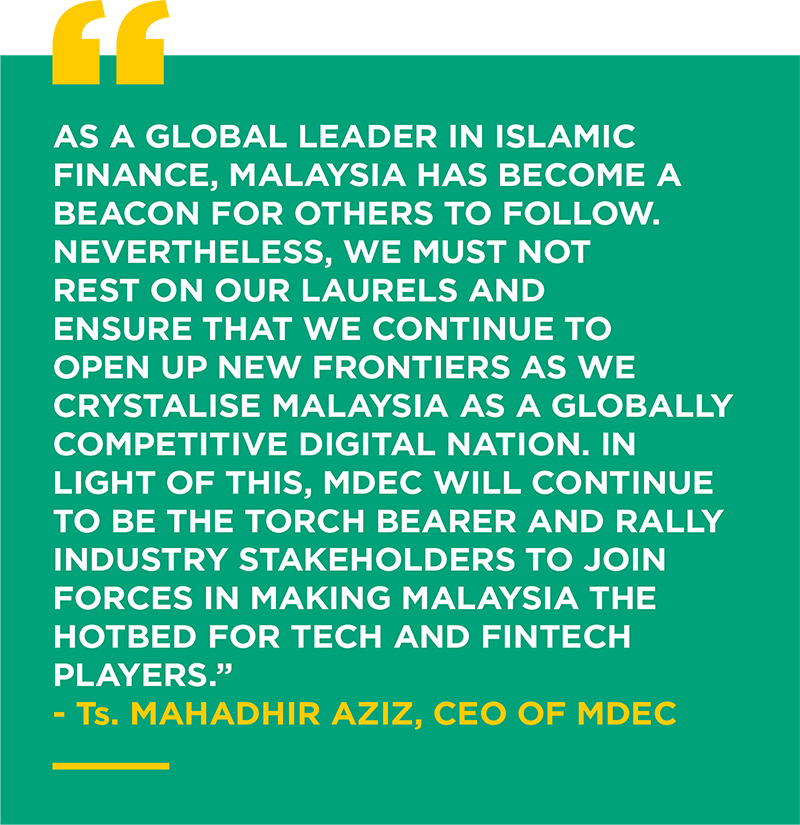Mobilising Funding for Islamic Fintech
Malaysia is staking its claim as a force to be reckoned with the right moves at the perfect time

The Islamic fintech industry is fast changing, reflecting the robust digital transformation of the global financial sector.
Malaysia, known worldwide as a pioneer in the fintech market, is bolstering the global Islamic market through its phenomenal growth in this economic standing. According to transaction volume, the country ranks first in market maturity and is one of the top five Islamic fintech markets.
This aim is congruent with the Malaysian government's Shared Property Vision 2030 (SPV2030), which emphasises Islamic finance and the digital economy as Key Economic Growth Activities to assist the country meet its future vision of evolving into a nation of sustainable growth. This relentless pursuit of innovation will also assure fair and equal distribution across economic status, ethnicities, areas and supply chains.

As many are still navigating development in this area, it is good that we are bettering a few steps forward. However, the issue with this ever-growing market is mobilising funding for the Islamic fintech start-ups, which can be challenging to secure due to numerous factors encircling Islamic finance awareness and investors’ understanding. Therefore, funding is a significant factor in achieving multiple successes but a persistent concern for many Islamic fintech start-ups.
In 2021, IFN Fintech interviewed 200 global Islamic fintech CEOs and founders to discover their biggest challenges in scaling up.
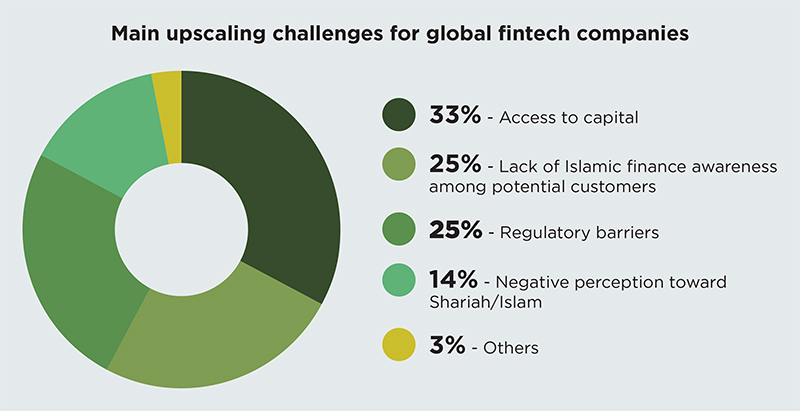
Apart from competing with conventional start-ups for limited venture capital (VC) and private equity (PE) funding, Islamic fintech entrepreneurs deal with the additional barrier of potential investor resistance or hesitance due to a lack of understanding and appreciation for Shariah-compliant principles and values.
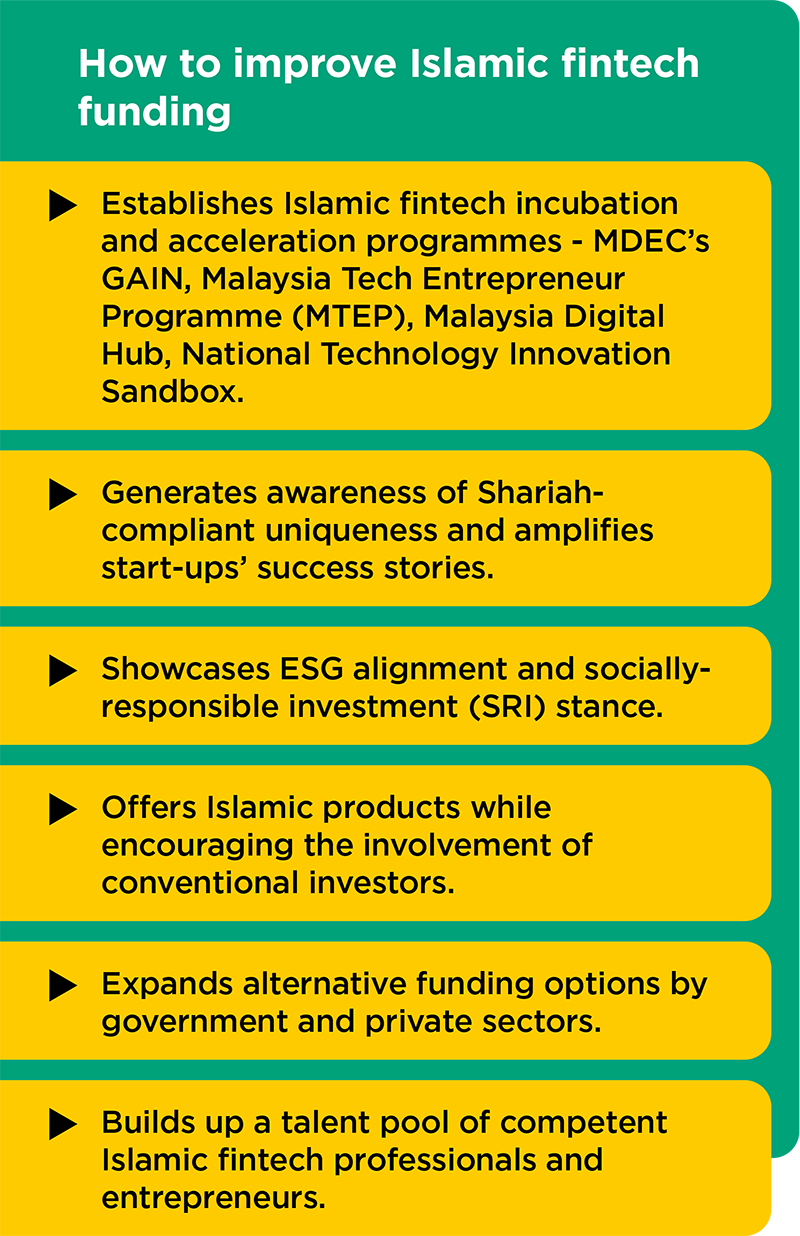
Malaysia is among the earliest ASEAN countries to foresee the importance and benefits of investing in the digital economy. It further includes the multiple government agencies’ efforts in accelerating digital presence and MDEC’s implementation of many initiatives, policies and infrastructure.
A drive organised by Islamic Finance news and supported by MDEC, the Malaysian Islamic Fintech Initiative is the country’s leading industry-driven engagement series aiming to mould the nation’s Islamic fintech and mobilise necessary funding for the industry.
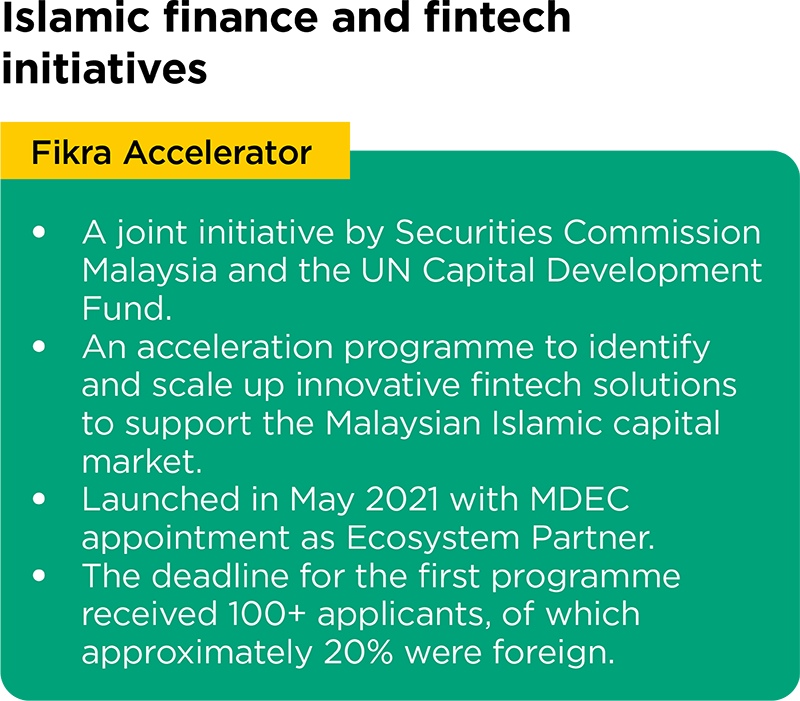
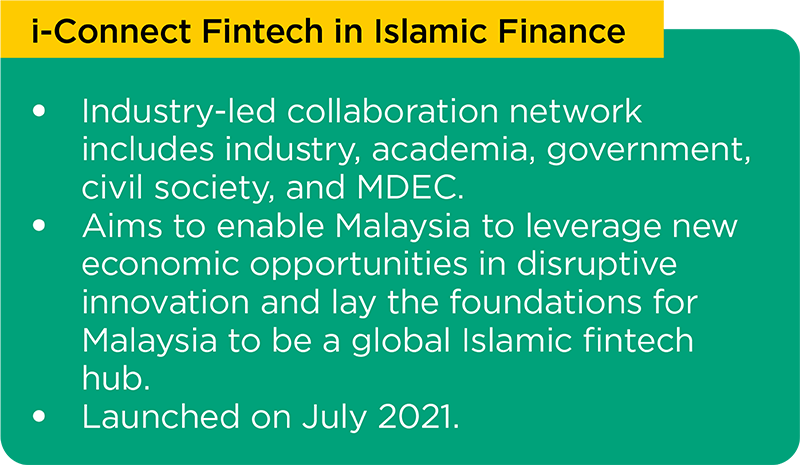
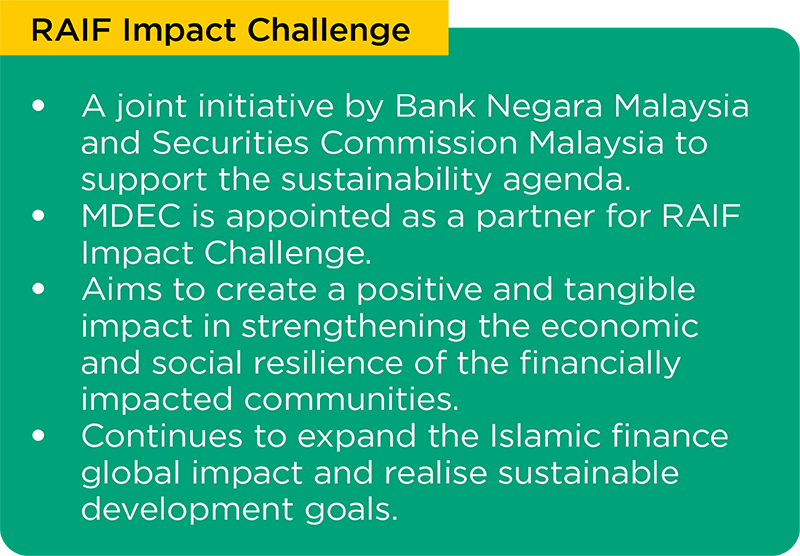
Malaysia's financial regulators, Bank Negara Malaysia (BNM) and the Securities Commission Malaysia (SC), are internationally acknowledged for pioneering one of the most advanced and complex Islamic finance regulatory infrastructures. In addition, given the potential of fintech to reshape the finance sector, regulators have taken the lead in introducing fintech legislation to develop a robust fintech ecosystem comprised of local and foreign market participants.
Islamic fintech is based on Shariah principles that advocate ethics and justice in fintech solutions
With the government's strong support for the fintech industry, the country, as a global Islamic finance leader, has become a very appealing option for many ambitious Islamic fintech companies. According to the 2021 IFN Fintech CEO and Founder Survey, Malaysia has the most robust and supportive regulatory environment and Islamic finance architecture for Shariah fintech activities. As a result, Malaysia, after Indonesia, is an ideal hub for Islamic fintech firms planning to diversify into the Asian market.








